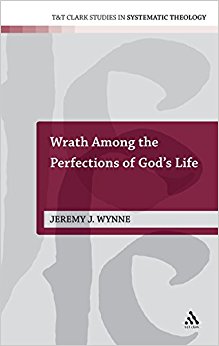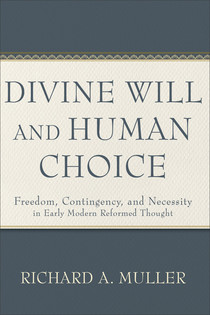 I hate to ever criticize a fellow bearer of the most excellent name of “Derek” (especially if he spells it correctly), but I had a few thoughts on a recent post by Derek Vreeland over at Missio Alliance. Entitled, “Is Penal Substitutionary Atonement Necessary?“, Vreeland attempts to do some parsing around the difference between penal substitutionary atonement and propitiatory satisfactional atonement in the wake of the SBC resolution on the matter. I won’t summarize the argument, as you should go read the piece and then come back.
I hate to ever criticize a fellow bearer of the most excellent name of “Derek” (especially if he spells it correctly), but I had a few thoughts on a recent post by Derek Vreeland over at Missio Alliance. Entitled, “Is Penal Substitutionary Atonement Necessary?“, Vreeland attempts to do some parsing around the difference between penal substitutionary atonement and propitiatory satisfactional atonement in the wake of the SBC resolution on the matter. I won’t summarize the argument, as you should go read the piece and then come back.
Before I raise some complaints, I’ll say two positives. First, it’s a careful piece with an irenic tone. Vreeland goes out of his way to try to avoid caricaturing views he’s critiquing as positing a bloodthirsty, savage god. And, second, praise be to that God that he takes the time to interact with someone like Packer, noting agreements where possible.
That said, I had some some quibbles, so I’ve sort of hastily written a few out since someone asked me about the piece online.
First, about the proper translation of hilasterion as “propitiation”, “mercy seat”, or “expiation.” I’ll simply note that the “mercy seat” reading, which was supposed to be the advance over propitiation or expiation, doesn’t obviously rule out a propitiatory dimension of the term, especially since that was the most common meaning in the Greek. You have to imagine the LXX writers used it to translate kapporeth for some reason. More importantly, even if the denotation is immediately expiation, that doesn’t necessarily remove the notion of turning away wrath. As Fleming Rutledge recently noted in The Crucifixion (p. 282), you could easily have a “propitiation via expiation” logic at work, since getting rid of sin would presumably turn away God’s wrath by removing the object of God’s wrath. (And while we’re on the subject, Rutledge is fantastic. Here’s my review.)
Second, we come to the status of wrath. I’ll just quote this paragraph:
Anger or wrath is not a literal attribute of God. As used by Paul in Romans, wrath is a metaphor for God’s eschatological judgement. God is not a mixture of love and wrath or love and anger. God is essentially a holy community of persons within whom there is no anger. God is pure love. God judges not from a place of judicial retributive anger, but from a heart of love.
This seems confused to me.
First, classically, God is not a mixture of anything, including his attributes. God is simple, not composed of parts. We might think of his attributes or perfections as simply the One God considered from a particular angle. Hence they are not in conflict with one another but in perfect harmony and, importantly, mutually-defining.
Now, there are all sorts of debates in Church history about how to think of God’s wrath. Whether it’s a primary attribute of God’s eternal nature (love, holiness, etc), or whether it’s something like a secondary attribute derivative of another kind of like mercy. Mercy is God’s goodness in action as it encounters an object of pity and in need of aid. God has always been good, but now in history we encounter his goodness in a new way in our state of need.
In the same way, we might think of God’s wrath as God’s inherent righteousness in the encounter with sin and sinners who violate God’s shalom and set themselves against him and their neighbors. The underlying reality of wrath, then, just is God’s eternal righteousness or justice, which is God himself. For a rich discussion on this point, I’d commend Jeremy Wynne’s monograph Wrath Among the Perfections of God’s Life.
Connected to this, there is absolutely no reason to set up a false binary between “love” and “judicial retributive anger.” It is entirely possible to love someone and be angry with them. And not just in a petty way, but precisely out of love it is possible to absolutely be furious with someone’s self-destructive choices which hurt themselves and others. (On which, see this article by Tony Lane on the relationship between Wrath and Love.)
What’s more, it’s also entirely possible to love someone with a perfect love and recognize they have violated the law in a way that renders them liable to judgment and be angry at them for precisely that reason. Recall that since God is simple, God’s love is holy, pure, and righteous. In which case, God’s love is not the sort of love which lies about sin, failing to recognize it, name it as what it is, and treat it accordingly (which is precisely what is judicial, retributive anger does).
In which case, it’s manifestly not a matter of finding the right balance of wrath and love, which would indeed be a troubling and silly suggestion.
This brings me to the next point:
The problem Jesus came to address was not the problem of a “holy” God of justifiable wrath punishing a world of sinners. Jesus did not come to die for our sins to remove God’s hostility and turn God’s no towards us into a yes. God’s attitude towards us has always been yes. Jesus came to reveal to us what God is like (John 1:18). When God in Christ encountered sinful people, did he punish them? Did he express God’s no to them? Did he condemn them? Did he exhibit hostility towards them? No! God forgave them, healed them, and restored them. As a God of love, God certainly does not approve of sin. However God’s rejection of sin and evil doesn’t imply that God is personally offended by sin and needs to be “satisfied” in order to forgive.
Again, Vreeland builds on that false binary. God can love someone, have a fundamental stance of “yes” towards them, but still have a moral need and responsibility to say “no” towards their sin (and towards them insofar as they are the authors of their sins). In other words, the infinite God can have a volitional stance towards which simultaneously considers his creatures as created in his Image, but distorted through their sin.
Here’s one thing to keep straight about this: God’s “need” for satisfaction isn’t the “need” of a petty, insecure person. It is the moral “need” of the obligation of God as the perfectly righteous King, the Lord, the Judge and Guarantor of the order of the whole earth to maintain justice within it and keep his word of blessing and cursing according to the Law he has set forth. In which case, to sin against him isn’t just a matter of mere personal insult, but rather a legal violation of the justice and goodness of all creation. And so judgment is a serious condemnation, a “no” against it.
That being said, there would be something perverse about God if we couldn’t affirm that his judicial “no” to sin as the Lord, King, and Judge wasn’t still a very “personal” one. It’s not a matter of mere disapproval. Recall for a moment a brief catalogue of sin: idolatry, murder, adultery, rape, racism, war, robbery, child abuse, pride, sex trafficking, etc.. If God really is the loving King who is personally committed to the good of his creation, there is a sense in which he has to be personally offended by such atrocious violations of the shalom he desires. Anything less than a personal wrath, a personal, righteous opposition to sin that must be dealt with, robs us of a God of personal love.
Beyond that, I’d add that this still isn’t a simple matter of turning a “no” of judgment into the “yes” of forgiveness. Instead, it is saying a fundamental “yes” to humanity and forgiving us by executing the “no” against sin through the judgment of the cross. I’ve made this point at length before, but God being God means God forgives in a unique, Godlike way, which means doing away with sin and guilt to which he must stand opposed and treat as it deserves.
I mean, this has been clear (in the Reformed tradition) as far back as Calvin who stated it is precisely the Father’s love which motivates his sending of the Son in order to remove the obstacle of our sin and guilt which intervenes between us (“by his love God the Father goes before and anticipates our reconciliation in Christ”). Or to put it differently, God isn’t moved from wrath to love because of Christ’s death. He’s moved by love to satisfy his wrath against us by removing our guilt and enmity through the blood of his cross.
I would go on, but this is already too long, but I think you get the gist of my point. While I appreciate Vreeland’s work, I think it buys into too many false binaries about love and wrath as well as fails to appreciate the sort of need involved in the notion of satisfaction be ultimately helpful for us on this point.
If you’d like more along this line, I’ve got my big post on objections and answers to penal substitution. Also, since Vreeland cited it, I suppose I’ll link my review to Wright’s atonement book, whose exegesis of Romans 5 and 3 (and 8, for that matter) I found confused.
Soli Deo Gloria
 I recently saw a discussion online about hell. In the course of things, one person noted their childhood trauma connected with teaching on this doctrine. Another (or possibly the same) went to suggest they couldn’t possibly see how growing up with a particular view of hell didn’t lead to childhood trauma. The doctrine itself was inherently trauma-causing and the implication was that this in itself counted strongly against its truth. Others chimed in, both for and against, either disagreeing or trying to defend the doctrine in question.
I recently saw a discussion online about hell. In the course of things, one person noted their childhood trauma connected with teaching on this doctrine. Another (or possibly the same) went to suggest they couldn’t possibly see how growing up with a particular view of hell didn’t lead to childhood trauma. The doctrine itself was inherently trauma-causing and the implication was that this in itself counted strongly against its truth. Others chimed in, both for and against, either disagreeing or trying to defend the doctrine in question.
 (Spoiler Alert: The following notes assume big plot twists and a knowledge of the film.)
(Spoiler Alert: The following notes assume big plot twists and a knowledge of the film.)